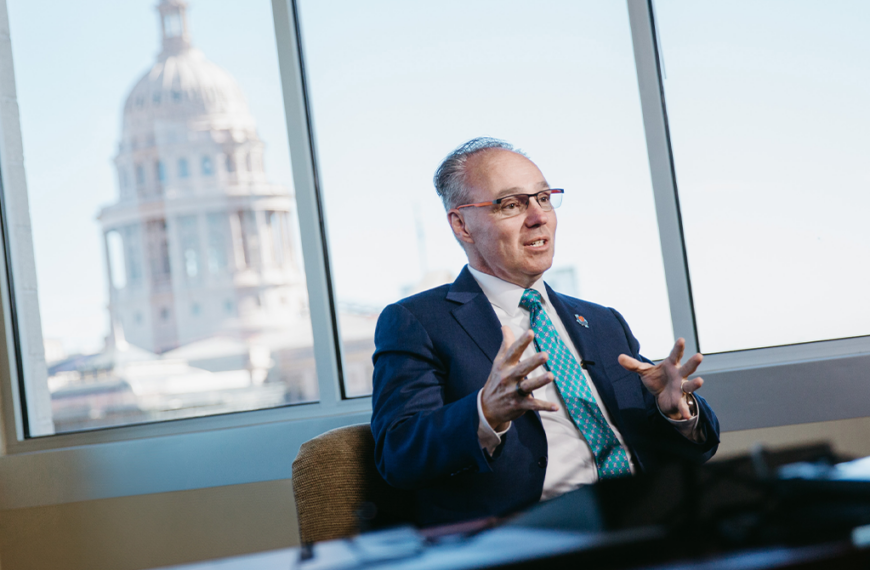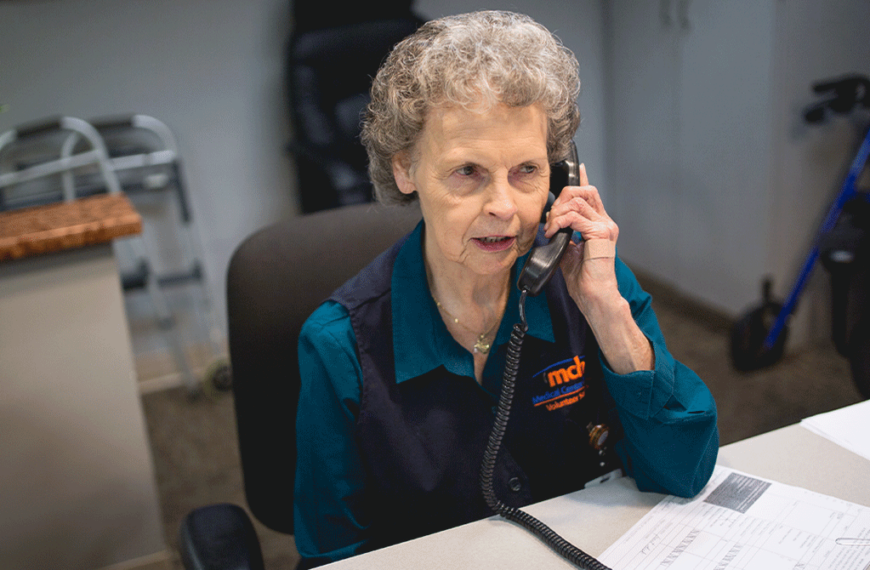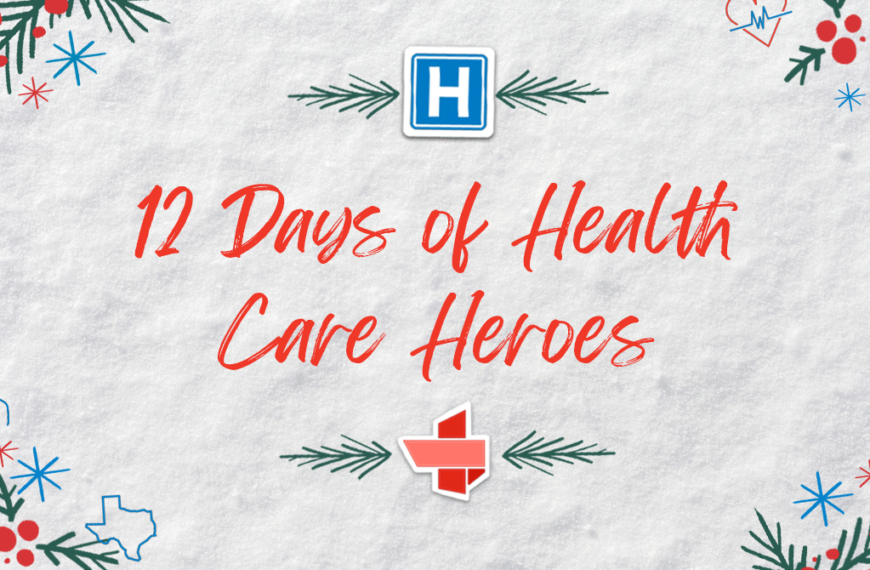Small and large, rural and urban, independent and affiliated – the characteristics of hospitals across Texas are as diverse as the state itself.
But one thing all hospitals and systems have in common is that communications and public outreach in their communities are everyday necessities – and become particularly crucial during times of crises and uncertainty.
Last week, the Texas Hospital Association’s Communications team brought together its counterparts from dozens of hospitals and systems around the state in a first-of-its-kind Texas Hospital Communicators Summit. Over the course of two days, communications professionals shared insights, listened to presentations from THA, the American Hospital Association and other experts, and strategized with their fellow attendees on a collaborative path forward.
The agenda covered a wide range of topics, including state and federal legislative issues, efforts to regain control of the narrative on hospitals, and ways to counter negative industry messaging from adversaries.
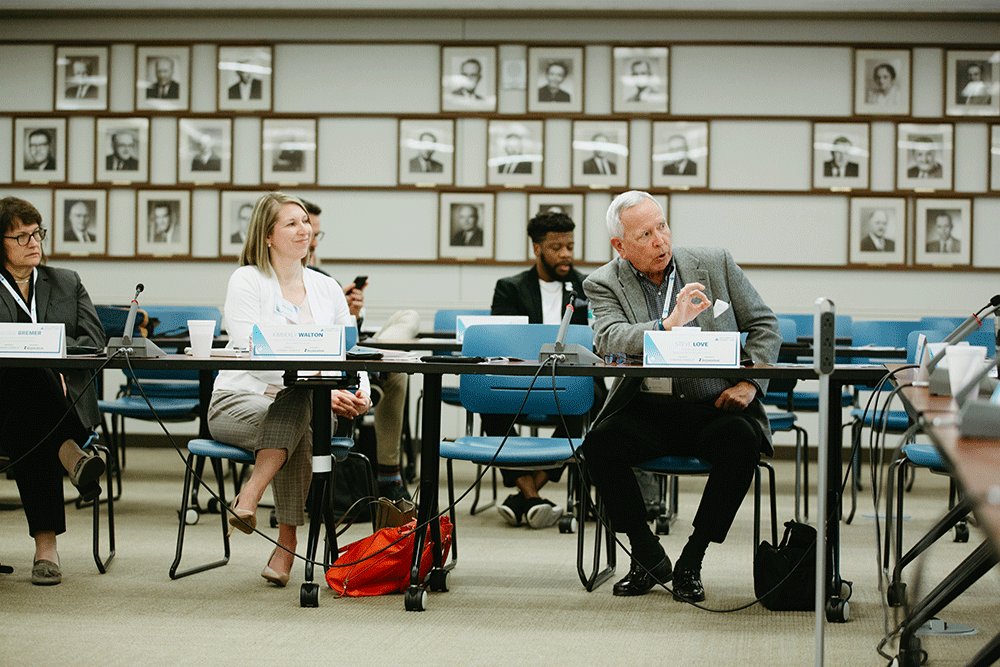
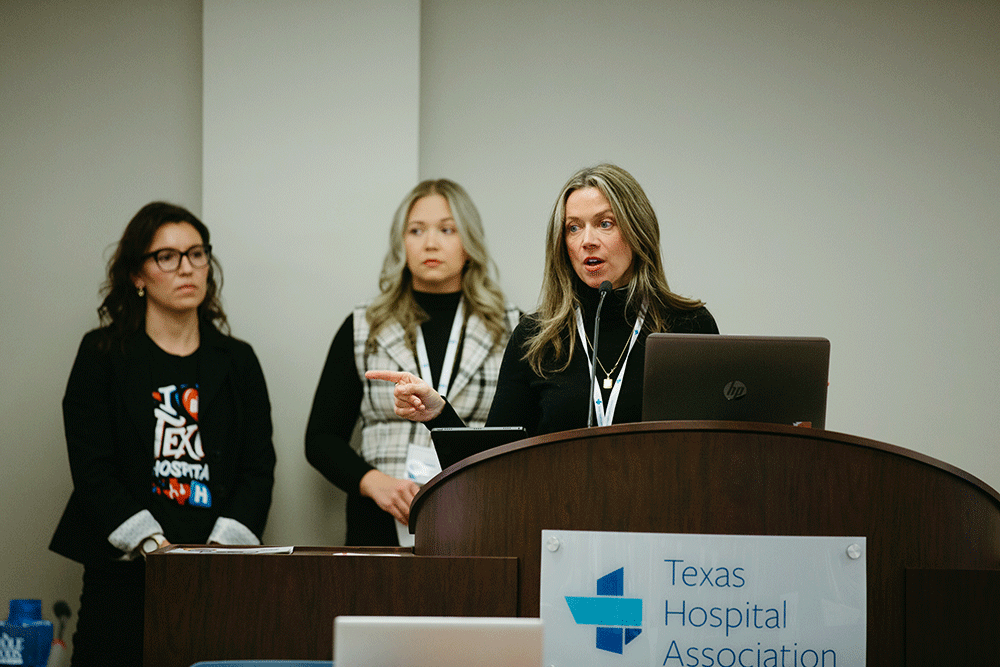
“Communication is a powerful thing. We have to zoom out and look at how our industry is being perceived, what’s real and what’s not,” said Carrie Williams, THA’s Chief Communications Officer. “This group exuded hospital spirit and patient-first perspectives, and working together in the same room helped crystalize our strategic direction.”
“Making those connections and building those relationships, knowing what resources are at our access, is absolutely invaluable,” said Angela Jackson Hudson, division director of marketing and communications for Texas at CommonSpirit Health. “It doesn’t mean, obviously, that we won’t continue to partner internally with our colleagues. But it just complements that. It combines the ‘what’ and the ‘how’ and just helps us to move in a much more informed way.”
Early on day one, a roundtable session asked each attendee to cite an example of what’s working well in their comms efforts, and one challenging aspect of those efforts. Examples of the “good” points cited by attendees included focusing on nonmedical drivers of health, broadening accessibility and mapping the “consumer journey” to identify pain points for patients. The challenging or “hard” aspects included reaching employees internally “when 80% of your workforce is not sitting in front of a computer all day,” and managing “outside crises” that emerge — such as cybersecurity issues, emergencies and the pandemic.


In the final session of the summit, the communicators broke into discussion groups and brainstormed ideas about pro-hospital industry messaging going forward. The groups stressed the need to highlight hospital innovations, economic impact, patient success stories and clinical achievements, while also emphasizing that hospitals always want what’s best for their patients and their communities.
“Coming from other industries into health care, I have always known the value of collaboration within an industry,” said Tracie Smith, marketing director at Titus Regional Medical Center in Mount Pleasant. “So having the opportunity to come together with other communications professionals from all over the state to hear challenges and success stories is not only encouraging, but it allows us to make contacts that we can use throughout the year to help us when we come into those challenging issues.”
Related articles from The Scope
COVID-19 Heroes Day: Honoring Sacrifice
Updated Feb. 4, 2025. (Originally published Feb. 2024.) For health…
Jim Kendrick: Turnarounds and Transformation in Texas Hospitals
Jim Kendrick takes the helm as the Texas Hospital Association’s…
Congratulations to THA’s December Newsmakers
Sponsored by In-Flow Executives, THA’s Newsmakers highlights leaders from THA…
The Vital Role of Volunteers in Texas Hospitals
Hospital volunteers play a vital role in creating a supportive…
THA’s Holiday Tribute to Texas Hospital Heroes
The countdown to Christmas has begun and THA is celebrating…
Congratulations to THA’s November Newsmakers
THA members making headlines for their leadership efforts.



